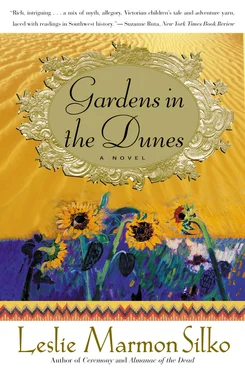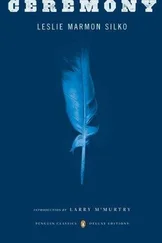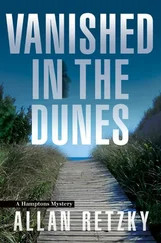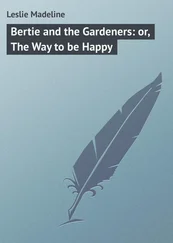By the next day, the hotel clerk knew about her interest in land, and so did the bank manager when Hattie went to arrange another transfer of funds. The banker had a list of real estate, mostly farmland for sale and for lease, which he would be delighted to show at her convenience. By the end of the week Hattie had received two dinner invitations — from the banker’s wife and the minister’s wife. But before she could respond to the invitations, unsettling news came in a note from the bank. Her bank in New York indicated the amount of the cash transfer she’d requested exceeded the balance in the account.
“But that can’t be!” she said aloud, and began to fumble with the valise that held the account book.

Delena thought she must have reached the edge of the land of the dead or some kind of hell because a terrible howling wind stung her face with grit and dust. When she choked and coughed it hurt so much she knew she wasn’t dead. A moment later big cold raindrops began to slap her face and arms. She heard the dogs stir; they’d been without water longer than she had, and she feared she might lose some of them. Her arms and legs were so stiff they hurt to move, but she managed to roll over on her back. Her lips and tongue were swollen and cracked; at first the raindrops stung. She leaned her head back so the rainwater bathed her dried-up eyes; if eyes dried out too long they were blind forever.
The wind increased with the rain and carried with it grit the size of seed beads, then the size of peas; as the wind’s scream increased even pebbles the size of small acorns were blasted against her, and she felt her clothing about to be torn from her body. Then the deluge came as if someone was dumping water from canteens, then from barrels, and suddenly it was as if a river in the sky cascaded down; even the wind got washed away.
The rainwater ran down her face into her mouth; at first her tongue and throat were so dry she almost choked on the water. Before long she felt rain seep along the ground beneath her, and rolled over to put her lips to the ground to suck the glorious cool water until her thirst was satisfied.
After a while she felt the water rise, up to her ribs, then to her ears. She rolled over again on her side with her legs drawn up, shivering in the cold stream of water. Once moistened, her eyes began to burn; they felt swollen so she did not try to open them; she could wait to find out if she was blind.
When she woke again, a light rain was falling and the dogs were standing over her licking her face; one dog licked her eyes with special vigor, gently using its teeth to remove the matter that caked them. She reached out and felt the crooked legs of the mother dog, the money sniffer. She let the dog saliva work its healing power for a while and then she had to find out.
It was so dark at first she feared she was blind; then she realized it was only dawn, and the storm clouds covered the rising sun. Gradually she could make out light and darkness in the sky, but the light hurt and caused tears to stream down her cheeks. Still she could make out forms — all seven dogs were there and she could see the motion of their tails as they wagged to greet her. “Well we made it, after all, didn’t we?” she said, but was shocked at the croaking sound she made when she spoke.
All morning she and the dogs rested, getting up only to drink water from the standing pools; she tried not to open her eyes unless it was to see what little rodent the dogs caught. After the rain, the desert creatures all came out and the dogs made short work of any cottontails or rats they saw. She let them have the first three or four before she took a rabbit for herself; by that time the sun dried the grass and twigs enough she was able to kindle a fire; she was so hungry; she didn’t care who saw the smoke. A big man needed more water so her pursuer was probably dead before the rain came.
Delena and the dogs stayed as long as there were puddles of water, and she filled all the water bags while the water was fresh and plentiful and saved it for the journey. The dogs and she alternately rested and hunted rabbits and birds for the first few days, but as she and the money-sniffer dog regained their strength, she took the dog to the soggy pile of dog packs and the wet cloth of the bundles she’d opened as gifts to welcome the storm clouds. The fierce winds took away all the cards of both decks and all the currency; bless the silver and the gold coins, they sank in the wet dirt but stayed put even in the driving rain and runoff.
A short distance away, wedged tightly between two rocks, was one of the Mexican tarot cards, terribly curled as it dried out. This will be the last reading of my poor cards, she thought as she leaned down to pick it up. She was encouraged to see it was La Estrella, the Star, companion and guide, the one who brought the rain. She found another card stuck in prickly pear needles — El Tambor, the Drum; its dicho , “Don’t crinkle the old leather, I want it for my drum,” made her think of the father of the Sand Lizard girl’s baby; now he was wrinkled up and dead for lack of water. The Sand Lizard girl didn’t want to be married to him anyway.
A short distance from the card the dog sniffed out a $20 bill blown around the spiny base of the ocotillo, which wore small holes in the paper. Nearby the dog sniffed out two $5 bills. The storm winds swept the money and cards ahead of the storm in the direction of the mountains they’d come from. She and the dog searched every day, and by the time the pools of rainwater began to dry up, the dog had found all but $40 of the cash. She was not so lucky herself finding the cards, which were too stiff to snag on branches and rocks the way the currency did. She found the Deer, the Mandolin, and the Soldier, but not even one of the Gypsy cards. When she studied the cards, the appearance of the Soldier card with the Deer persuaded her the fat man was still alive. Oh well, he wouldn’t be in any condition to trouble her for a while.
The rainstorm left large pools of standing water all the way to Tucson. They kept to the dry washes and game trails to avoid soldiers and other criminals who might endanger the cash the dogs carried. Delena had not seen the desert so green in early autumn. Wild amaranth sprouted in stands as tall as she was in some places in the washes. The rains brought newborn rabbits and rats, so she and the dogs ate well too. Still, she was relieved to reach the safe house in Tucson to eat beans, red chile, and tortillas after so many little roasted rodents.
♦ ♦ ♦
The big baked ham had a thick shell of honey sugar glaze garnished with small garnet cranberries and fat brown raisins. All around the ham, side dishes brimmed with baby peas in butter cream sauce, candied yams in apple butter, baked pears in lemongrass pudding, and black-eyed peas in ham gravy, and a platter of biscuits puffy and light as clouds flanked with little dishes of strawberry, blueberry, and raspberry preserves.
There was no one in the room to serve him, but the ham was sliced and he was about to fill his plate when he realized what he really wanted was a drink of water; but the fine crystal goblets above his plate were empty. He circled the table but found no water or wine, which annoyed him enough that he opened the door.
Before him was a much larger room, a wonderful dining hall with high ceilings and big bay windows with snowy mountain peaks in the distance. The great long table was laden with racks of lamb and veal, a pheasant and a suckling pig, platters of crab legs and lobsters still hot, casseroles of wild rice, baby onions in walnuts, green beans with corn, and squash with pine nuts. Loaves and braids of bread — sweet fig bread, apple bread, zucchini bread, and spicy rolls — surrounded fruit pies and cream pies, and towering cakes iced in whipped cream and chocolate fudge.
Читать дальше













